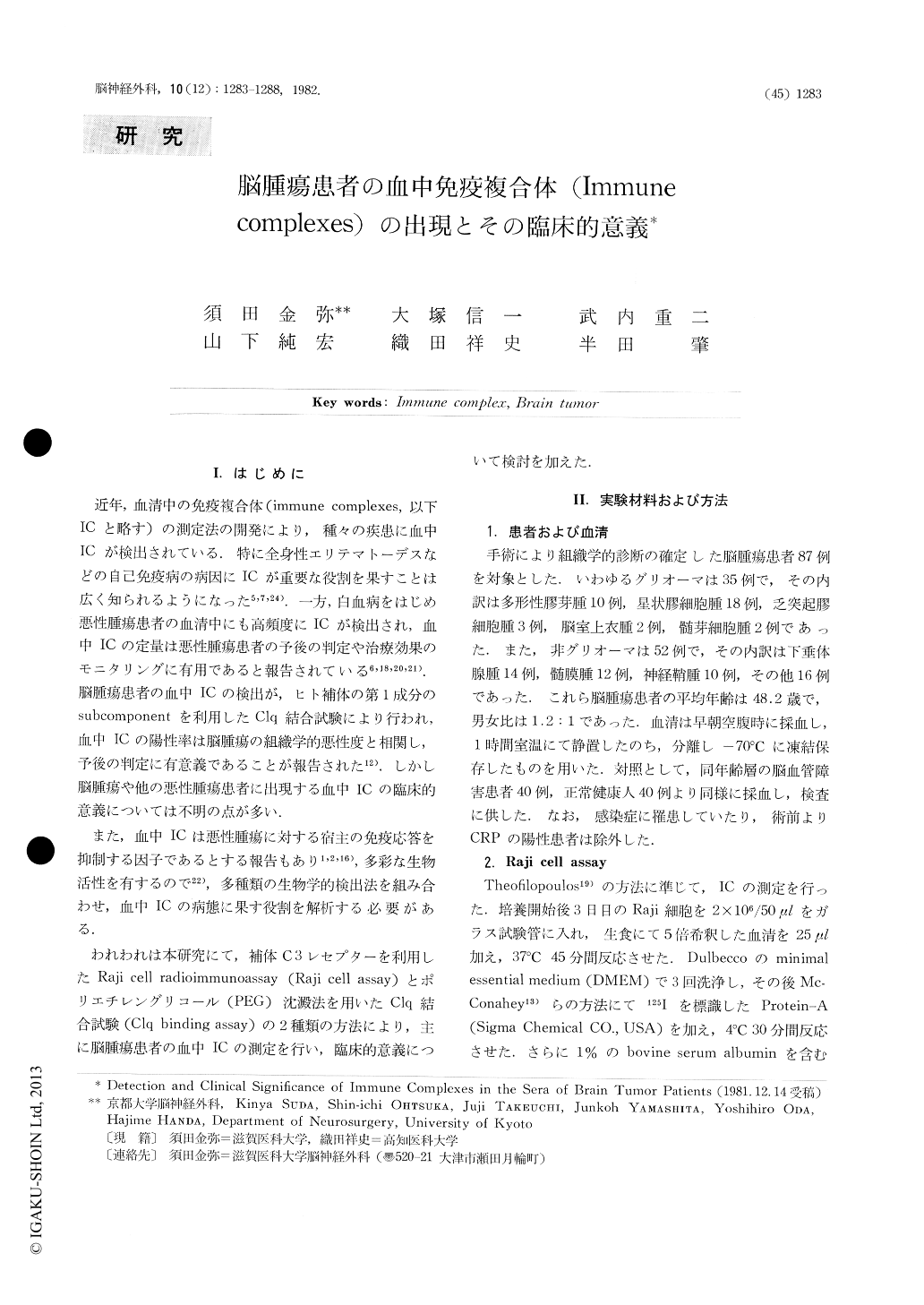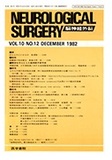Japanese
English
- 有料閲覧
- Abstract 文献概要
- 1ページ目 Look Inside
I.はじめに
近年,血清中の免疫複合体(immune complexes,以下ICと略す)の測定法の開発により,種々の疾患に血中ICが検出されている.特に全身性エリテマトーデスなどの自己免疫病の病因にICが重要な役割を果すことは広く知られるようになった5,7,24).一方,白血病をはじめ悪性腫瘍患者の血清中にも高頻度にICが検出され,血中ICの定量は悪性腫瘍患者の予後の判定や治療効果のモニタリングに有用であると報告されている6,18,20,21).脳腫瘍患者の血中ICの検出が,ヒト補体の第1成分のsubcomponentを利用したClq結合試験により行われ,血中ICの陽性率は脳腫瘍の組織学的悪性度と相関し,予後の判定に有意義であることが報告された12).しかし脳腫瘍や他の悪性腫瘍患者に出現する血中ICの臨床的意義については不明の点が多い.
また,血中ICは悪性腫瘍に対する宿主の免疫応答を抑制する因子であるとする報告もあり1,2,16),多彩な生物活性を有するので22),多種類の生物学的検出法を組み合わせ,血中ICの病態に果す役割を解析する必要がある.
Levels of circulating immune complexes (IC) in thesera of 87 patients with brain tumor were measured byRaji cell radioimmunoassay and Clq binding assay. Thecontrol samples were obtained from 40 healthy blood donorsand 40 cerebrovascular patients.
The patients with glial tumor had a high incidence ofelevated level of IC than patients with non-glial benign tumor,elevated level of IC than patients with non-glial benigntumor, cerebrovascular disease and normal controls.
There was a significant association between these Clqbinding activity and Raji cell binding activity in the seraof glial tumor patients.

Copyright © 1982, Igaku-Shoin Ltd. All rights reserved.


